Tigray conflict: Over 400,000 suffer famine as clashes continue
UN officials say more than 400,000 people in Ethiopia’s conflict-ridden region of Tigray are now suffering famine, amid the risk of more clashes despite a unilateral ceasefire declared by the government this week.
On Friday, the UN Security Council held its first public meeting on the situation in Tigray.
The northern region has been embroiled in conflict since Prime Minister Abiy Ahmed declared a war against the forces of the region’s then-ruling party, the Tigray People’s Liberation Front (TPLF), in November.
The conflict has killed thousands of people and pushed almost 2 million people to the brink of famine, according to acting UN aid chief Ramesh Rajasingham.
He warned the council on Friday that the humanitarian situation in Tigray had “worsened dramatically” in recent weeks.
"More than 400,000 people are estimated to have crossed the threshold into famine and another 1.8 million people are on the brink of famine," Rajasingham said.
“Thirty-three thousand children are severely malnourished,” he added.
The council’s meeting was held days after the government of Prime Minister Abiy Ahmed declared a unilateral ceasefire.
The government said it declared the truce following a request from Tigray's Abiy-appointed interim government.
An official told AFP that the regional interim government officials had earlier opted to leave their posts.
The TPLF, however, dismissed the ceasefire as a “joke,” vowing to keep fighting until "enemies" are driven out despite the ceasefire.
Ever since, the region experienced electricity and communication blackouts.
The US ambassador to the United Nations, Linda Thomas-Greenfield, said Abiy’s government must demonstrate “it truly intends to use the ceasefire to address the humanitarian catastrophe.”
She warned that any denial of aid access is “not an indication of a humanitarian ceasefire, but of a siege.”
Thomas-Greenfield urged the parties to the conflict to “seize this moment,” and that if they failed there could be devastating consequences for the nation and the Horn of Africa, as well.
Ethiopia’s UN ambassador, Taye Atske Selassie Amde, however, said that the purpose of the ceasefire “is not to make a siege, it is to save lives.”
Rajasingham further said, “All groups must stop fighting to allow humanitarian aid to get through unimpeded and to protect civilians.”
“It is essential that we act fast and without any further obstruction.”
The Security Council has so far failed to take any action on the situation in Tigray, though.
VIDEO | UK arrests Press TV contributor amid crackdown on pro-Palestine activism
VIDEO | Axis of Resistance stands as multinational front for justice
Swiss academics call for end to research treaty with Israel over Gaza genocide
VIDEO | Israeli regime harasses, tortures Gazans returning through Rafah crossing
Israel faces existential threat of internal collapse before centenary, general says
Police fire tear gas as protests erupt against ICE and Israel at Milan Winter Olympics
UK PM’s chief of staff resigns over appointment of Epstein associate as US envoy
Iran leads Islamic world in electric vehicle motor technology


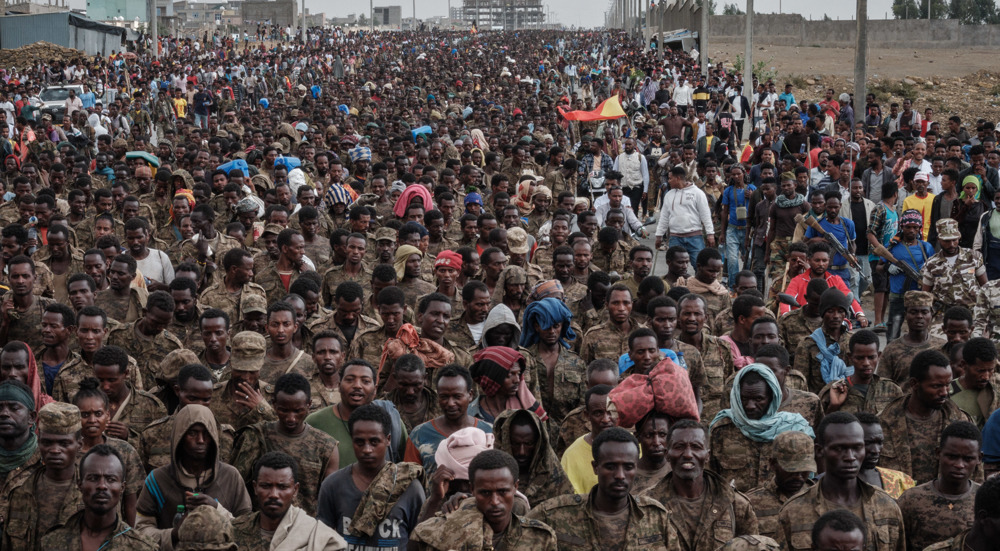
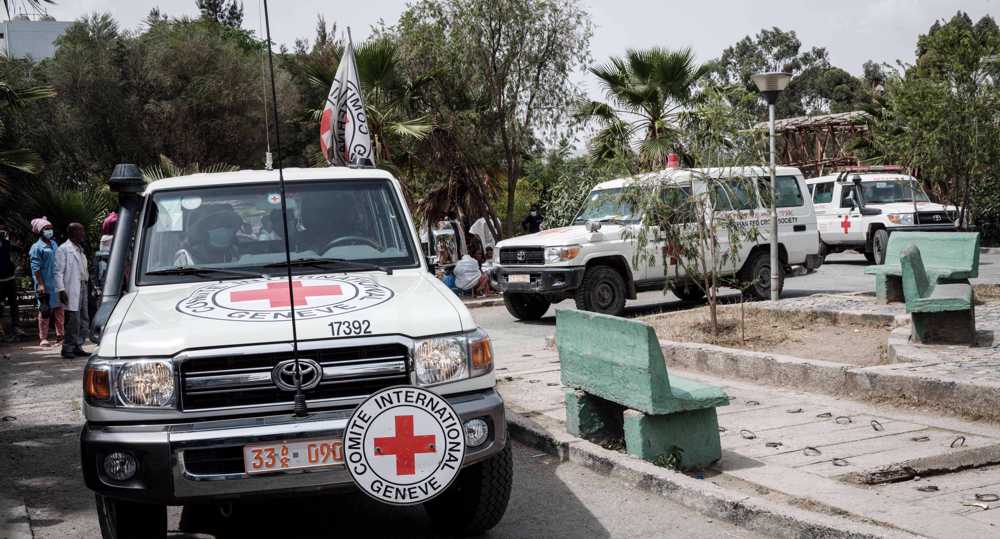


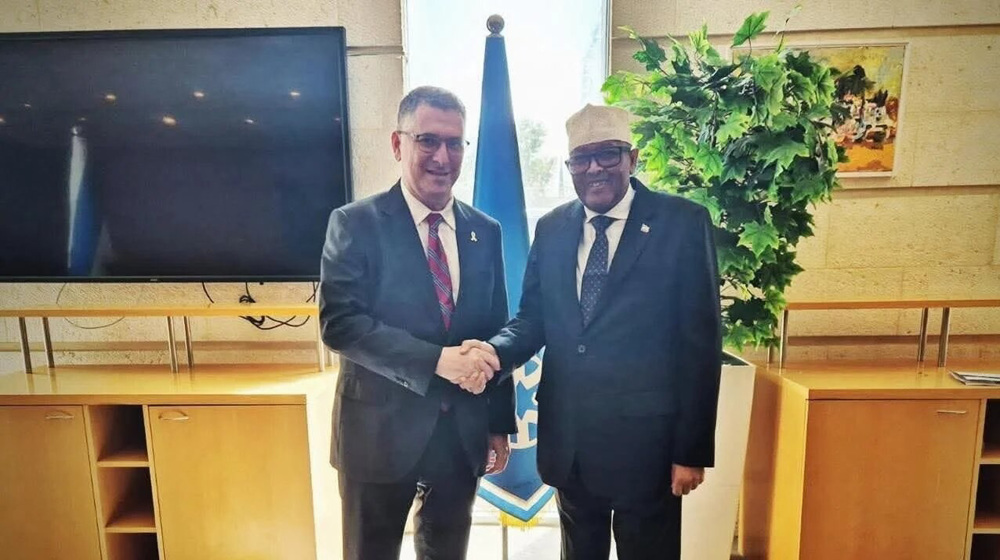



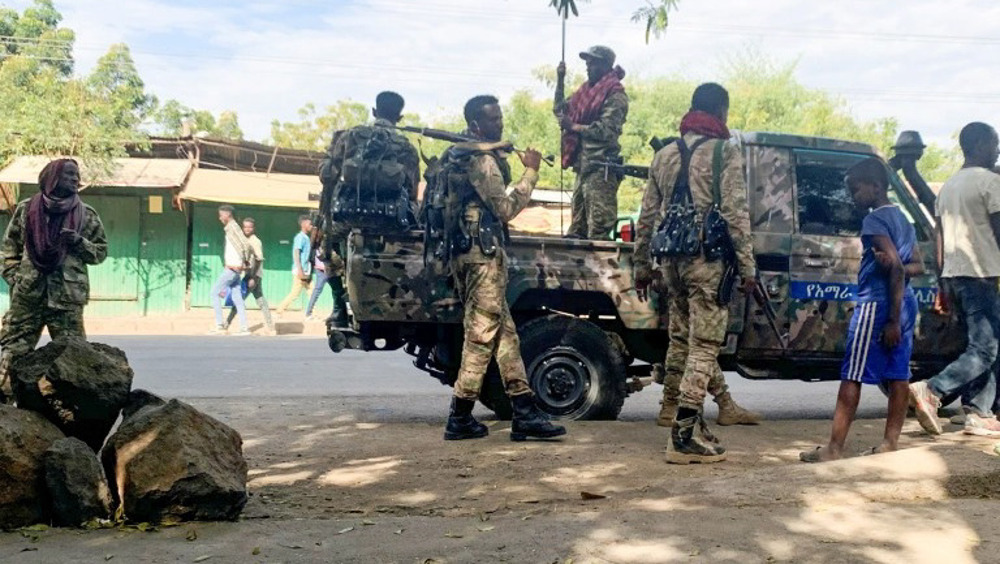
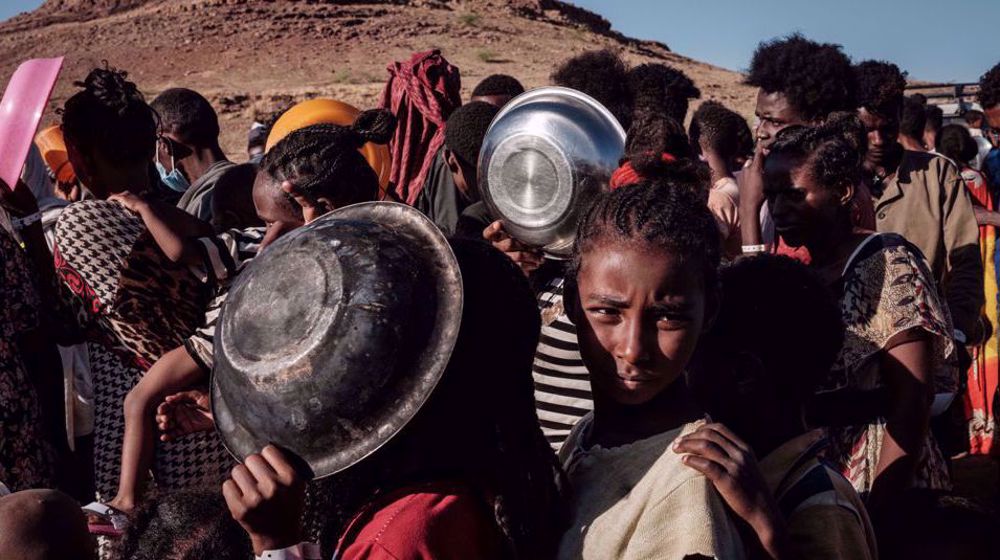
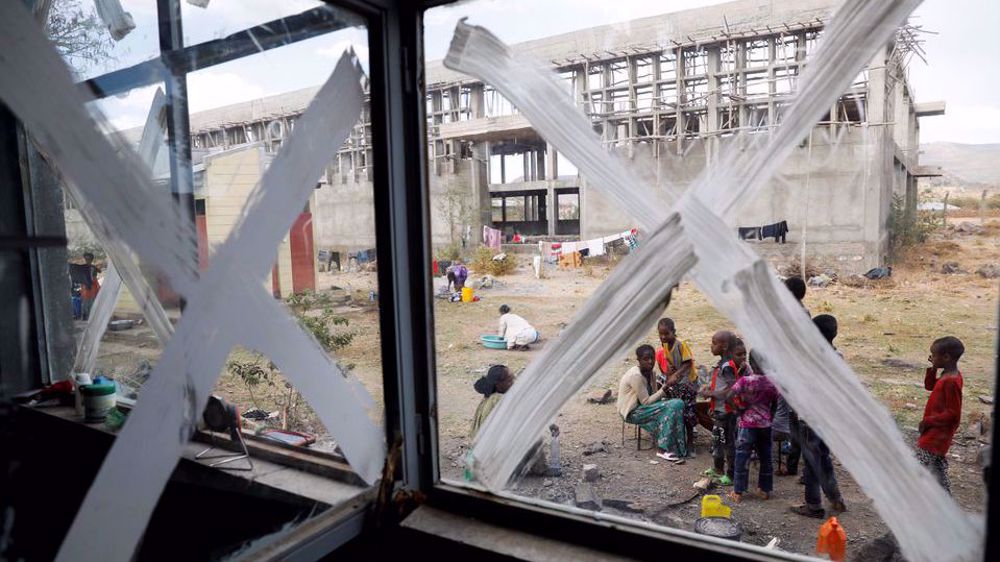

 This makes it easy to access the Press TV website
This makes it easy to access the Press TV website